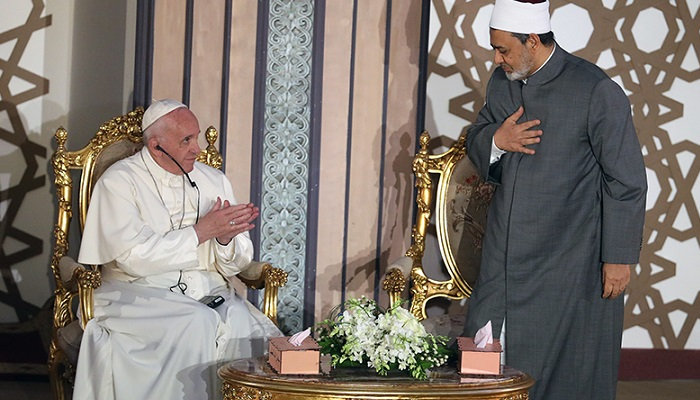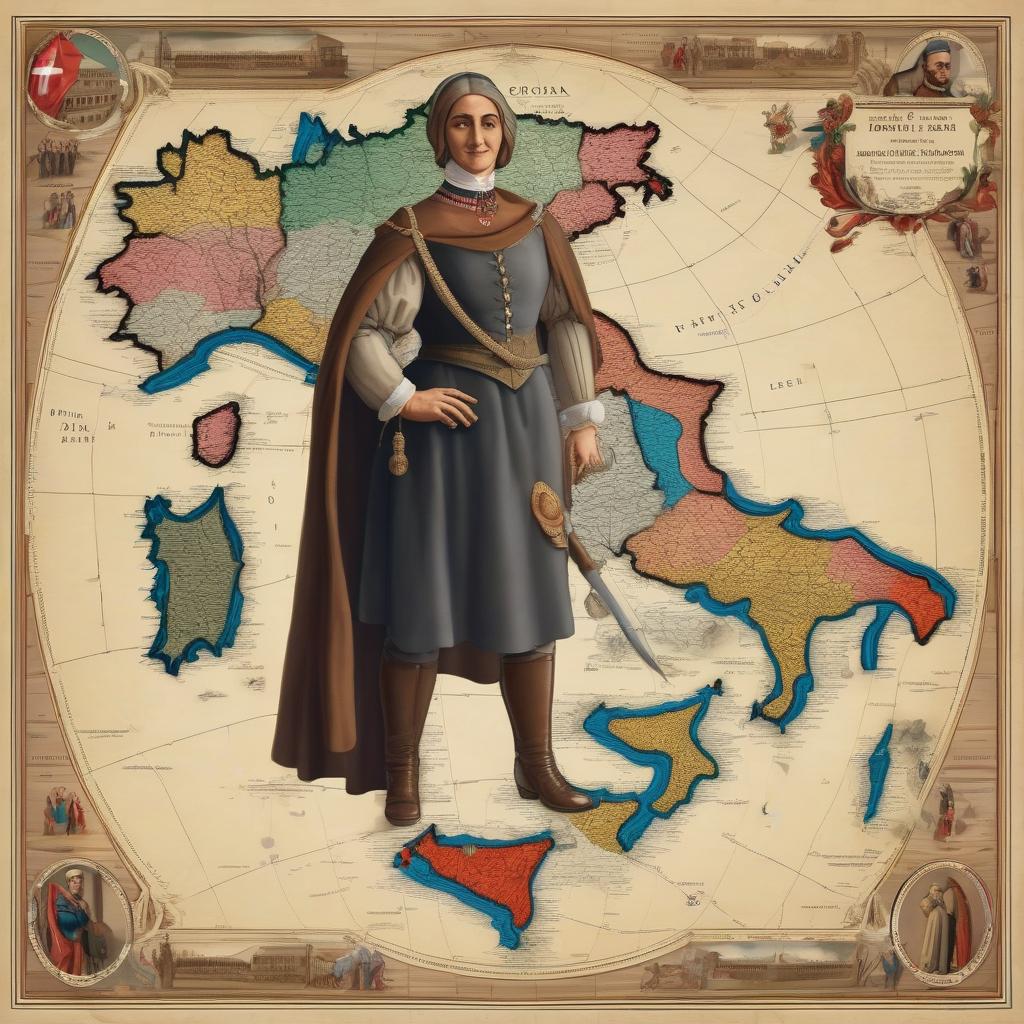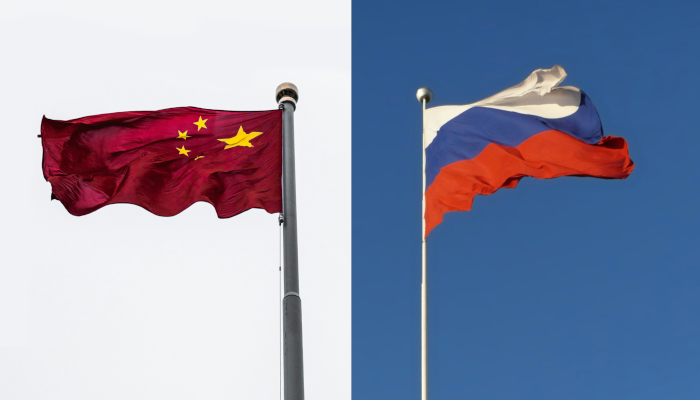
Despite much of the popular alarmist talk, Islam is arguably in a deeper crisis than the Christian world, and this is the problem.
Islam has little or no structured unified organization independent from a single state, unlike the Christian world, where the Catholic church is the largest unitary religion, and there are vastly organized Orthodox and Episcopalian churches.
There is no longer a caliph and a publicly recognized caliphate able to muster the faithful of the world.
There is no Islamic superpower. There are many countries where Islam is important – Indonesia, Pakistan, Saudi Arabia, Turkey, Egypt, Algeria, Morocco – but they cannot band together. They have very different agendas that have little to do with their religious beliefs. None of them can rise to the rank of superpower, challenging the United States, China, Russia, the European Union, or even Japan or India.
Unlike in the first Cold War, there is no superpower supporting the Islamic world per se, fighting Israel, portrayed as a puppet of the United States.
There is no longer a strategic asset like oil, which since the 1970s gave the Islamic world clout and influence through blackmail on prices and inflation. Oil is no longer a rare commodity. Gas and oil are plentiful, and new shale technology is revolutionizing the market, taking away the hedge these Islamic countries had in the past.
They do not even have blackmail through the export of terrorism. In the past three decades, some rich Islamic countries paid off radical extremists to wage war on infidels in foreign countries. This policy exported abroad an internal threat and at the same time lent legitimacy to the existing authoritarian regimes.
This policy backfired since many extremists turned against their former donors, physically attacked heads of the rich oil countries, and made attempts on these people’s lives. Therefore, it pushed these rich Muslim countries more into the arms of Western and Israeli security forces, who could guarantee their safety.
Many Muslim countries are at war with one another. The Saudis are enemies of the Iranians; the Qatari are playing their own game. The prince of Morocco has an agenda in Egypt; Turkey is perhaps a frenemy. Indonesia is a very different brand of Islam. Pakistan has its own plans.
That is, even middle-ranking Islamic countries have more active hostility with one another than with non-Muslim countries.
Moreover, Islam has weaker states and stronger religious beliefs among the people of those states. “Non-Muslim states,” states where Muslims are not the majority and do not impose their religious agenda to the country, are the opposite: they are stronger, with people who have weaker religious zeal. The offspring of modernity is apparently that you have to put down excessive religious fervor if you want your state to be strong. Too much religion weakens states and states ultimately matter. Faith then can and should develop independently from state organizations, not linked to achieving a political goal.
In fact, all radical Muslims claim to attack Christian imperialists, but their first victims are different brands of Islam; the example of Afghanistan is the latest instance where radical Taliban took power just to be struck and defied by an even more radical group.
In sum, Islam has no strong organizational or ideological glue, no challenging power to bring to the table. It has become almost a label that radical Christians use to scare their masses and try to move them in a direction they like.
There are terrorist groups, but these are criminal organizations with minimal effective impact on the global political scenery. There are voices of social and international dissent and discontent. People unhappy with modern capitalism may look at Islam as a way of voicing their unhappiness; however, differently from the communism of the 19th and 20th centuries, there is no organization.
Marx and his successors, besides producing a theory, wrought a powerful association that took shape in the Third International. This grouped together one organization and one belief, world communism, and was backed by one powerful country, the USSR.
Integration into the West, the real challenge
The real problems for Islam are the integration of Muslim immigrants in Europe and the overall relationship with the Christian world, which can no longer be confrontational. Both have social and religious aspects.
The role of the Pope here has become immense since he was the first to speak to Muslim refugees without fear of intimidation by extremists. He understood that a majority of moderate Muslims didn’t have a voice and were, in fact, the first victims of Muslim extremists. The peace agreement between Israel and some Muslim countries in the Middle East follows the same pattern.
His effort paid off as he supported more moderate Muslims, searching for ways out of their vise: squeezed by authoritarian Islamic regimes and Muslim extremists. In finding this path, he also de facto indicated a relationship with the growing mass of Muslim immigrants in developed countries.
Here Europe, just off the shores of Muslim North Africa, is the frontline. Again, the problem is not just the increase in numbers of Muslims in European countries, but the difficulty of these countries in dealing with these Muslims.
These countries had governments geared toward dealing with Christian churches. Many of these countries had concordats with the Holy See; others had separate agreements with other Christian churches, say the Lutherans, the Anglicans, or the Calvinists.
But there is a big question mark about how to deal with Islam. And then also what kind of Islam are we talking about? Because Islam is not unified, who represents whom?
All is very unclear; preachers come and go. They can set up their mosques, roughly like new Christian faiths do in the United States.
Moreover, in Europe, the traditional setup was born out of the French Revolution at the end of the 18th century. Then and there, these countries and the Christian tradition broke the mold that lasted for millennia, the unflinching tie and welding of sin and crime: Whatever was deemed a sin for the Christians was also considered a crime by the ruler.
After the French Revolution, sins and crimes took separate routes, although they would have a dialogue with one another. For instance, divorce is allowed by the state and not authorized by many churches and so on.
This is an ongoing process, but in principle, the break exists and is very strong.
For the Muslim world and the export of the modern state in Islam, in theory, the break also exists, but the weight of Sharia law is still solid.
Then in Europe, it should be necessary to make clear that sins under the Sharia law are not necessarily crimes in the modern states and that this break must be enforced. Without that, we have a skewed playing field in which Christians and Muslims are treated differently. This is not a threat for Christians, but it can become a threat for Muslims.
In fact, in a state with a Christian majority, the attempt to enforce Sharia laws could trigger discrimination, hate crimes, and eventually lead to expulsion or forced conversion.
History is full of these examples, and history is famous for its repetitions.
Moreover, Europe must comprehend Islam as part of the Western/Mediterranean civilization. Islam comes out of the Jewish and Christian traditions. Its philosophy is grounded on Greek conventions. The Caliph of Constantinople called himself Emperor of the Romans, just like the last Byzantine ruler; Christians for centuries treated Islam as Christian heresy, not a different tradition.
In her History of God, Karen Armstrong detailed the mutual study and influence of Jewish, Christian, and Islamic theology, proving their relative similarity. Graham Fuller, in his A World Without Islam, argues that Mediterranean geopolitics rather than religion is at the root of the Christian-Muslim clash, but that East Asia’s political and economic rise changed global geopolitics. Then, for religious and political reasons, ties between the Christian and Muslim world are bound to move into a new space.
In this sense, it is crucial to find ways to integrate Muslim traditions and end cultural discrimination.
At the moment, some Muslim countries use state proceeds to fund the spread of Islam in the Christian world. There are mosques in Rome, the capital of Christianity, and there are Catholic churches that even lend their spaces for Muslim prayers.
However, the same is not true in many Muslim countries, which discourage or forbid the ancient local practice of Christianity or even the return of the Christian faith, based on narrow readings of the Quran.
This is not a threat to Rome and the West; it is a threat and a significant burden on these Muslim countries. Some of them, for instance, look weak, under siege, defensive, and therefore under growing pressure from the non-Muslim world. This pressure could eventually crush them, as they cannot resist possible pressure from any of the many anti-Muslim countries.
To preempt this, Muslim countries should be open to more tolerance for Christians, just as Christian states in the West are increasingly tolerant of Muslims.
In all of this, one thing emerges: Many Muslims are more sympathetic to the Pope or Christian priests than to Muslim radicals. There are now what we may call “Muslims for Francis.” This can be one of the futures for Christianity and Islam, with Islam losing its isolation and confrontational nature toward Christianity.








